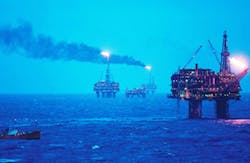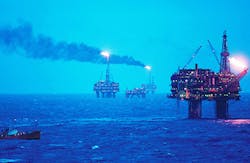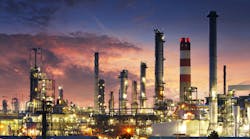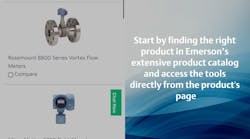UK flowmeter specialist Litre Meter has launched the second in a series of oil and gas industry safety surveys that focuses on pressure equipment.
The survey is designed to enable manufacturers and resellers totest assertions about functionality and construction and quality of manufacture and concentrates on the Pressure Equipment Directive (PED). The purpose of PED is to harmonize national laws regarding the design, manufacture, testing and conformity assessment of pressure equipment and assemblies of pressure equipment. This includes pressurized storage containers, heat exchangers, steam generators, boilers, industrial piping, safety devices and pressure accessories. Such pressure equipment is widely used in the process industries including oil and gas; chemical, pharmaceutical; plastics and rubber; and food and beverage—all of which are key markets for Litre Meter.
All relevant equipment, plant and systems in the European Economic Area must comply with the PED. It requires the level of hazard of pressure equipment to be assessed and classified into one of five categories labelled SEP (sound engineering practice) then categories I-IV. The higher the level of hazard, the more extensive the level of quality assurance required during the design, manufacture and testing of the equipment.
RELATED: Survey Shows Instrument Reliability A Key Driver for Oil & Gas Safety Standards
"There has been increased focus on safety issues in the offshore sector over recent years,” Litre Meter CEO Charles Wemyss said in an announcement about the survey. “We want to make sure that our manufacturing focus is on safety in relation to both the environment and industry trends.
"Issues surrounding the environment and hydrocarbon releases, asset aging and life extension drive the focus on safety. We want to be able to help in the process of recognizing hazards and reducing risk as well as help engineers take ownership of risk and asset integrity through proving assertions about the functionality and construction of instruments.
"Asset integrity management ensures that the people, systems, processes and resources that deliver integrity are in place, in use and will perform on demand over the asset's lifecycle.
"Being able to prove assertions about the manufacture and functionality of equipment are vital in this process."
Earlier this year Litre Meter conducted a survey of the use of Safety Integrity Levels (SIL) in the specification of instrumention in the oil and gas sector. The results of that survey are published at http://tiny.cc/sil-result.
To take the PED survey visit http://tiny.cc/ped. Respondents have a chance to win a Kindle for taking part.



